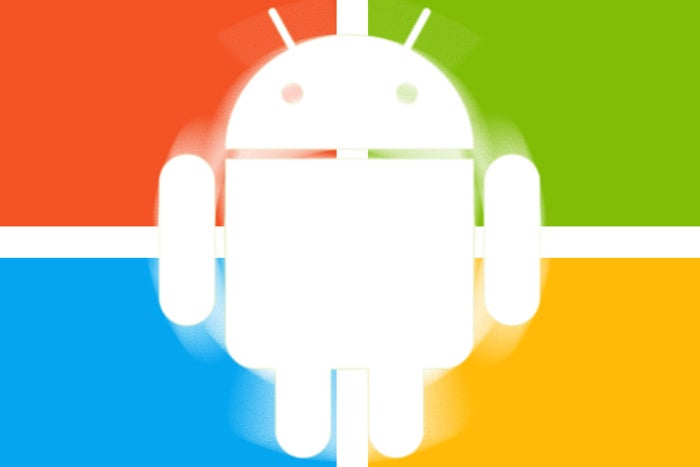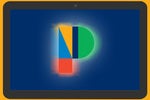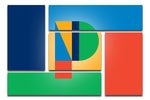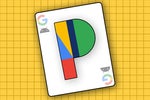Quick: In a couple of words, what is Android? How would you characterize it?
If you said an "operating system," you're technically right, of course. Android is indeed the Google-made software that powers countless phones and mobile devices.
But increasingly, that's just one small part of what Android represents. At its core, Android is an ecosystem — one that's already an integral element of two major operating systems and is about to dip its toes into a third.
Android apps are immensely important to Android-running phones, of course — the Galaxy this-and-thats, Pixel here-and-theres, and so on. And over the past couple years, they've grown ever more important to devices running Chrome OS — a platform that itself is feeling more like an extension of Android with every passing week.
Now, in what seems like a hell-freezing-over move, Microsoft (yes, Microsoft!) has announced it's working on adding support for Android apps (yes, Android apps!) on Windows 10 (yes, Windows 10!) systems.
There is a catch: The apps won't actually be installed locally on the Windows computers. Rather, folks who have both an Android phone and a Windows 10 device will be able to view and use apps from their phones via their Windows systems. It's something called app mirroring. If it's done well, though — and given the fact that Microsoft isn't even committing to a specific timeframe for this launch as of yet, I'd hope it will be — it oughta effectively be like running Android apps on your PC, no thought or effort required.
That, my friends, is huge. In the words of the great George Costanza, worlds are colliding — and in a very intriguing way.
Think about it: By bringing Android app support into Chrome OS, Google redefined the Chromebook's possibilities — and its limitations. Most of us are quite accustomed to mobile software nowadays, and there's something to be said for being able to use the same apps you know from your phone on your desktop computer.
Having that capability can be uniquely advantageous, too, and not just for the "filling in the gaps" type of benefits applicable to a Chromebook. Even on Windows, Android app access would open the door for you to use mobile-only utilities like Snapseed or Google Trips. It'd also empower you to take advantage of apps where valuable features are limited to mobile users — like YouTube, which allows you to download content for offline viewing only from its Android or iOS environments. And it'd let you tap into familiar touch-centric interfaces, as appropriate, for all the other services you use throughout the day.
Android apps on Windows: The broader implications
Immediate effects aside, introducing Android app mirroring on Windows would effectively make the Android ecosystem part of the Windows experience. While methods for accessing Android apps on Windows have been available for some time now — either through an emulator like Bluestacks or a third-party mirroring app like AirDroid — they've generally been clunky, complicated, and beyond anything a typical user would ever mess around with (or even know about, for that matter). Having an effortless and system-integrated way to run Android apps on Windows introduces a whole new kind of scenario.
On some level, one could contend the advent of Android app access on Windows could take away some of the cachet Google's achieved by offering its Android app catalog on Chrome OS. And from the most, ahem, surface-level perspective, that may be true — at least to some degree. But for its targeted type of user, Chrome OS has plenty of other advantages over the traditional desktop environment, and Android app support is just one small (and recently added) part of the picture.
The bigger effect, if you ask me, is the benefit this move will bring to Android in that ecosystem sense we've been discussing. Android apps already run on the world's largest operating system — y'know, Android itself — as well as on Google's rapidly growing army of Chrome OS devices. If Microsoft manages to make its Android app mirroring setup good enough to feel like a native app-using experience, Android apps will then basically be used on Windows as well.
That's an awfully huge and diverse reach for a single ecosystem of applications — and an awfully huge and diverse set of potential users developers will be able to serve with a single Google Play Store creation. That creates a powerful incentive for those developers to make Android a priority, which can only be a good thing for users across all of those areas.
(And let's not forget, by the way, that Microsoft itself is wholeheartedly embracing Android and basically creating its own mini-platform within Google's ecosystem. That also seems...relevant.)
Oh — and one more thing...
Just in case all of this hasn't made your brain explode yet, consider one final piece of the interconnected operating system puzzle: For a while now, Google has been working on a project that'd allow owners of certain Chromebooks to boot into Windows on their devices. At the same time, the company has been plugging away at a system that'd make it possible to sign into Windows using your Google credentials.
So what if you were able to use both Chrome OS and Windows on a Chromebook — signing into both sides with your Google credentials — and then access and use Android apps in both environments? Android, then, would be the common denominator between Chrome OS and Windows, on a single Google-connected computer. In the words of everyone's favorite Matrix-bound hacker: Whoaaa.
It's a wild new world, gang. Walls are crumbling fast — and what we're seeing right now is just the beginning.
Sign up for my weekly newsletter to get more practical tips, personal recommendations, and plain-English perspective on the news that matters.

[Android Intelligence videos at Computerworld]



























































































